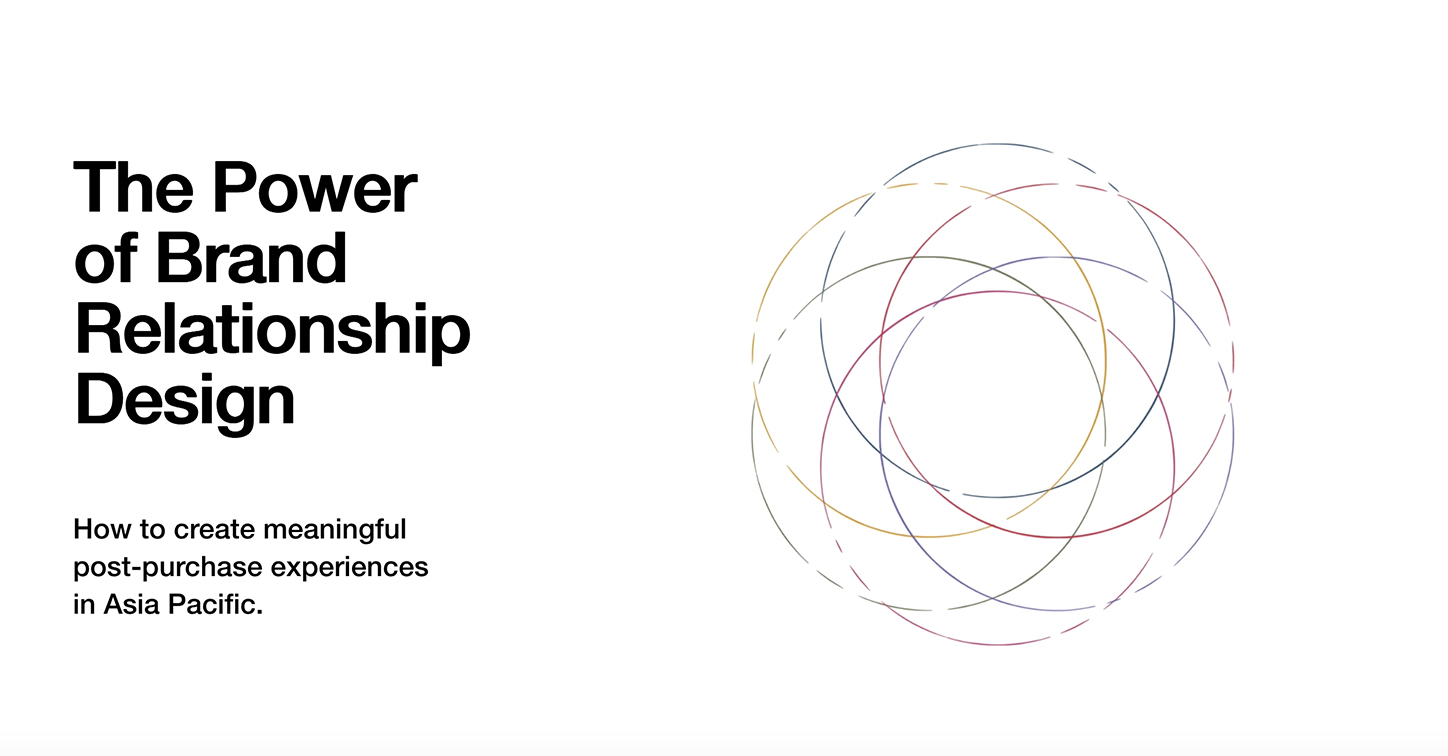R/GA Singapore releases report revealing Singapore’s Growing Loyalty Crisis

The Power of Brand Relationship Design, released today by R/GA Singapore, reveals a growing loyalty crisis in Singapore. Despite widespread recognition of digital services, a range of basic, psychological and human needs are failing to be met. When compared with other Asia Pacific countries surveyed in the report, Singapore emerges top with the highest number of respondents (43%) saying their #1 personal goal is to be happy and they buy products to achieve that goal, and ranks second globally. Like never before, there are new expectations and dynamics required for people in Singapore to stay bought into services.
The study also unveils the ‘environment and sustainability’ as the most important cause area for people in Singapore, when it comes to causes they would like to see more brands and businesses supporting, scoring higher than ‘mental health’ and ‘physical health’.
The research surveyed nearly 16,000 people in the US, EMEA, LATAM, and APAC across 15 service verticals, and honed in on six: e-commerce, personal care and beauty, consumer technology and electronics, credit cards, quick-service restaurants, and health and fitness.
Traditional loyalty programmes are failing:
In Singapore, there is a gap between the promise of loyalty programmes and its commercial impact. 93% of Singaporeans deem loyalty rewards/incentives are important, but only 15% sign up for these loyalty programmes. Singapore at 15% ranks number two among countries surveyed, next to China at 22%, with the global average being at 13%.
People in Singapore want to get the most out of their product, instead of being sold more:
Respondents were asked to outline the things they most felt they needed immediately after they bought something. 44% of respondents chose “Getting the most out of my purchases”, 41% of respondents chose ‘just answer my questions’ as their primary post-purchase need, and 29% of respondents indicated they were interested in product curation: brands helping them discover what else to buy. Despite being the third preference in order of priority, this is the brand’s preferred tactic—using the first moments of the relationship to cross-sell and upsell.
People in Singapore demand sophisticated, digital-first experiences when learning about products and services they just bought into:
With an evolved, digital-savvy population, people in Singapore are increasingly eager for more interactive and engaging ways to learn about the product or service they buy into. 88% of people in Singapore want interactive experiences to learn about products and the category, 80% want to learn about the products and the category through game-based activities, and 77% want live (real-time) educational services that included coaching, content, and community.
Environment and sustainability: a growing concern:
To help identify the role that purpose-based initiatives played in creating relationships with people, respondents in Singapore were asked to rate the causes that were most important to them, that they would like to see more brands supporting. An outsize percentage of respondents (55%) chose “environment and sustainability” as a cause becoming more important to them. 52% of respondents said their ‘mental health’ is becoming a more important cause area, and 51% of respondents said ‘physical health’ is becoming a more important cause area.
Dorothy Peng, Managing Director, R/GA Singapore, said: “With the rise of a more informed and digitally savvy population, there is a clear disconnect between what they want and what they’re getting. From our study, it’s clear that business-as-usual will not work. Business processes need to be re-evaluated against these changing dynamics, and regaining the trust of customers is now a priority. This will be the stepping stone to creating a more human future of loyalty,”
Implications for brands and businesses:
While the global findings suggest significant progress is required to better meet these growing needs, there are variations across countries. In Singapore, the only way to succeed long-term is for brands to build genuine relationships with the people of Singapore.
These findings carry significant implications for brands and businesses in terms of how they engage with customers and the report includes a series of recommendations:
– Amid a steady increase of disloyalty, brands need to shift their focus to helping people make the most of their purchases by building genuine relationships.
– With a disproportionate amount of money invested in post-purchase sales, businesses need to compete on the basics of post-purchase support. By focusing on proactive customer care, not sales, brands can also maximise the value of interactions, as consumers increasingly turn from customers into brand advocates.
– The desire for a more human future of loyalty has led to more people in Singapore wanting to stay connected to a community. Brands must now undertake a bigger responsibility to bring communities together to meet people’s expansive needs of happiness, health and wellbeing.
“It’s well known that retaining an existing customer is cheaper than attracting a new one and incremental improvements in retention can lead to an outsized impact on profitability,” said Brady Ambler, Executive Strategy Director, R/GA Singapore.
“However, what this new data shows us is the traditional loyalty playbook is fundamentally broken and businesses are missing out on an obvious growth driver. We see an enormous opportunity for post-purchase innovation.”
The Power of Brand Relationship Design: Methodology and country rankings
From June 14 to September 27, 2020, R/GA surveyed nearly 16,000 consumers in the US, EMEA, LATAM, and APAC across 15 service verticals, and honed in on six: e-commerce, personal care and beauty, consumer technology and electronics, credit cards, quick service restaurants, and health and fitness.
External interviews were also conducted with subject matter experts and industry stakeholders. The goal of this proprietary research was twofold: to understand how brand relationships are evolving across these six product/service verticals—and what it takes to create the most optimal post-purchase customer relationship.
Markets covered: US, UK, Germany, Australia, China, Japan, Singapore, Argentina, and Brazil.
